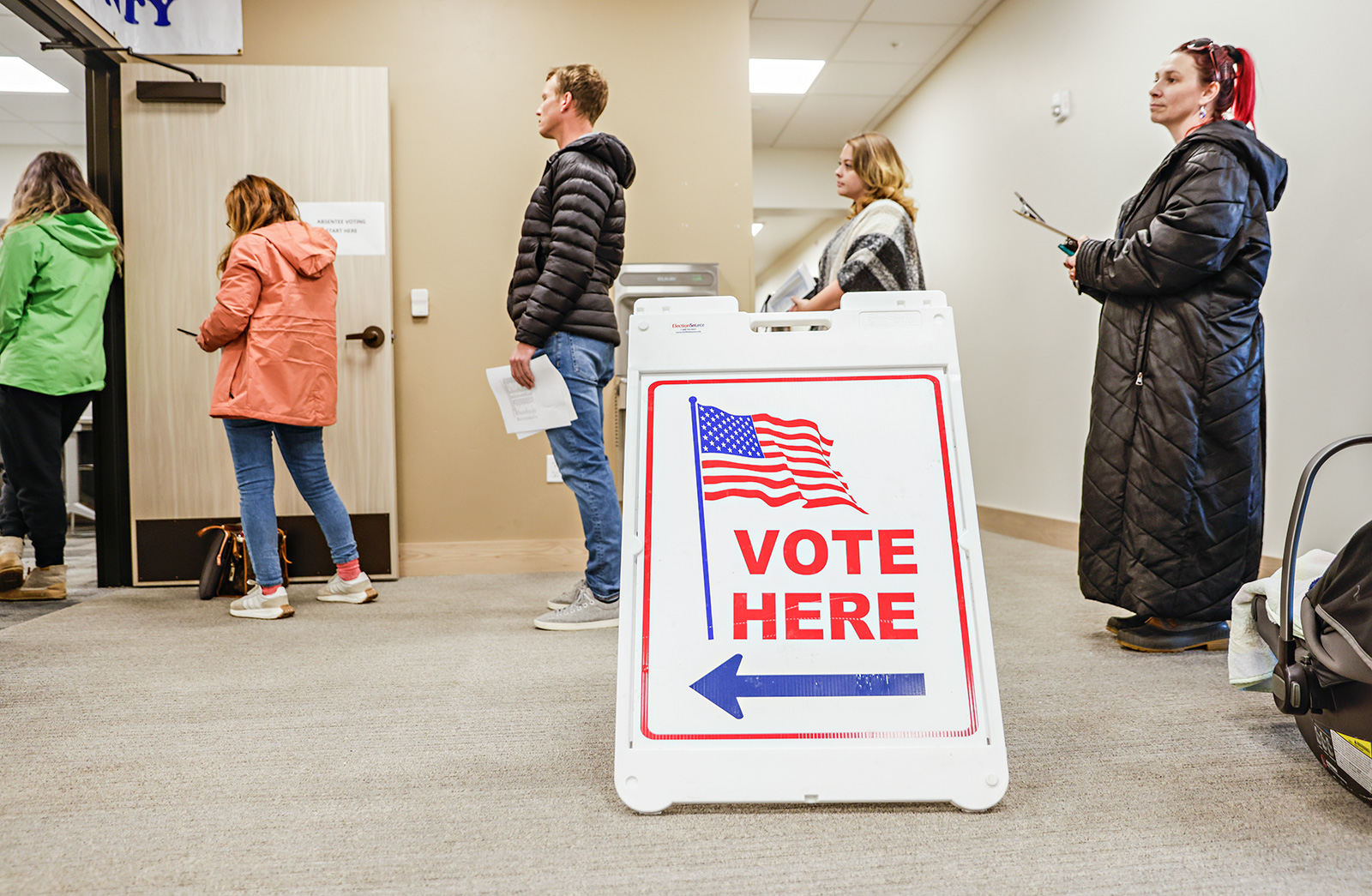Montana Supreme Court Sides with Backers of Top-four Primary Ballot Initiative, Overrules Attorney General
In a unanimous ruling, the court determined that a proposed ballot initiative to overhaul the state’s elections doesn’t violate the Constitution
By Arren Kimbel-Sannit, Montana Free Press
The Montana Supreme Court last week overturned a decision by Montana Attorney General Austin Knudsen to block from the ballot in 2024 a citizen initiative that would create top-four primary elections in the state.
In a unanimous ruling, Chief Justice Mike McGrath wrote that the attorney general erred in determining that the initiative violated the Montana Constitution’s prohibition on “log-rolling,” or bundling multiple unrelated amendments into a single measure for voters to approve, and ordered Knudsen to refer the initiative to Montana’s top election administrator, the secretary of state.
“I am thrilled to see the Supreme Court put Montanans back in charge of their election system,” former Rep. Frank Garner, R-Kalispell, a member of the committee backing the initiative, told Montana Free Press Wednesday.
Ballot Initiative 12, as it is now called, would, for most offices, replace Montana’s current system of partisan primary elections with an open primary in which the four candidates with the most votes advance to the general election regardless of party.
Representatives from the initiative committee, Montanans for Election Reform, say the proposal, along with another the group is bringing that would require candidates to receive a majority of the vote to win an election, would create a more responsive and less polarized government.
“We think Montanans have the right to demand responsiveness from their government and to insist on the benefits of competition when it comes to the people that represent them,” Garner told MTFP in August.
The system the group envisions would resemble the one that was recently adopted in Alaska, which combines a top-four primary with an “instant runoff,” more often called ranked-choice voting. (The majority-vote initiative in Montana, however, does not prescribe ranked-choice voting, instead directing the Legislature to prescribe a system for determining what happens if a candidate doesn’t receive majority support.)
While the research on the electoral effects of open primaries and ranked-choice voting varies, the 2022 congressional election in Alaska yielded a victory for a relatively moderate Democrat — Mary Peltola — over two Republicans, political scion Nick Begich III and former Gov. Sarah Palin, who railed against the system on the campaign trail.
The language of Ballot Initiative 12, in addition to establishing a top-four primary system, also features a cap on the number of signatures a candidate needs to access the ballot and a prohibition on any requirement that candidates receive a partisan nomination to make the ballot. These features, among other provisions, ran afoul of the attorney general’s office, which argued that they constituted separate, unrelated decisions for the voters, which would violate the Montana Constitution. The attorney general has the statutory authority to reject proposed ballot initiatives on constitutional grounds.
“Ballot Measure 12’s primary purpose is to constitutionally mandate a top-four primary for specified offices,” Deputy Solicitor General Brent Mead wrote in the legal review of the initiative. But its full text “then adds numerous provisions that are not closely related to the creation of a top-four primary.”
Montanans for Election Reform challenged the legal determination in court, arguing that each of the initiative’s components is essential to its overall functioning.
“In short, in proposing BI-12, [Montanans for Election Reform] specifically intends to present the voters with a clear, binary choice: adopt a workable, constitutional top-four primary system for the offices identified in the ballot title, or reject that system,” the lawsuit reads. “BI-12 intentionally incorporates all elements necessary to create that system, and thus meets both objectives of the separate-vote requirement.”
The Montana Supreme Court apparently found that argument persuasive,
The court heavily relied upon its September opinion in Monforton v. Knudsen, in which it upheld the attorney general’s decision to void a previous ballot initiative on the same grounds he used to invalidate the top-four initiative.
That case established a metric for evaluating the relatedness of components in a ballot initiative:
“…Numerous factors may be considered in determining whether the provisions of a proposed constitutional amendment are closely related, including: whether various provisions are facially related, whether all the matters addressed by the proposition concern a single section of the constitution, whether the voters or the legislature historically has treated the matters addressed as one subject, and whether the various provisions are qualitatively similar in their effect on either procedural or substantive law,” the court wrote then.
Unlike in the Monforton case, the court determined that the provisions in the top-four initiative check those boxes.
For example, McGrath wrote Wednesday that he concurred with Montanans for Election Reform’s argument that “a reasonable signature cap is essential to ensuring that the Legislature cannot functionally convert a top-four primary into a top-two primary by requiring onerous signature gathering that would serve to bar candidates from the ballot,” and thus that “the signature-gathering limitation is not a separate function but is rather … an integral part of the top-four primary system BI-12 proposes.
“We thus disagree with the attorney general that the signature-gathering limitation is not closely related to the remainder of BI-12,” the ruling continues.
A spokesperson for Knudsen said his office would comply with the order.
The group’s majority-vote initiative still awaits Knudsen’s legal review.
This story originally appeared in the Montana Free Press, which can be found online at montanafreepress.org.